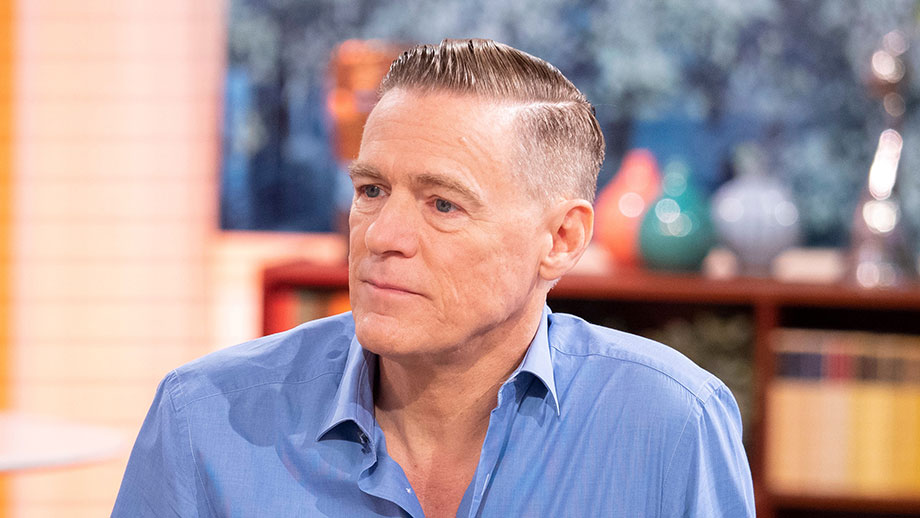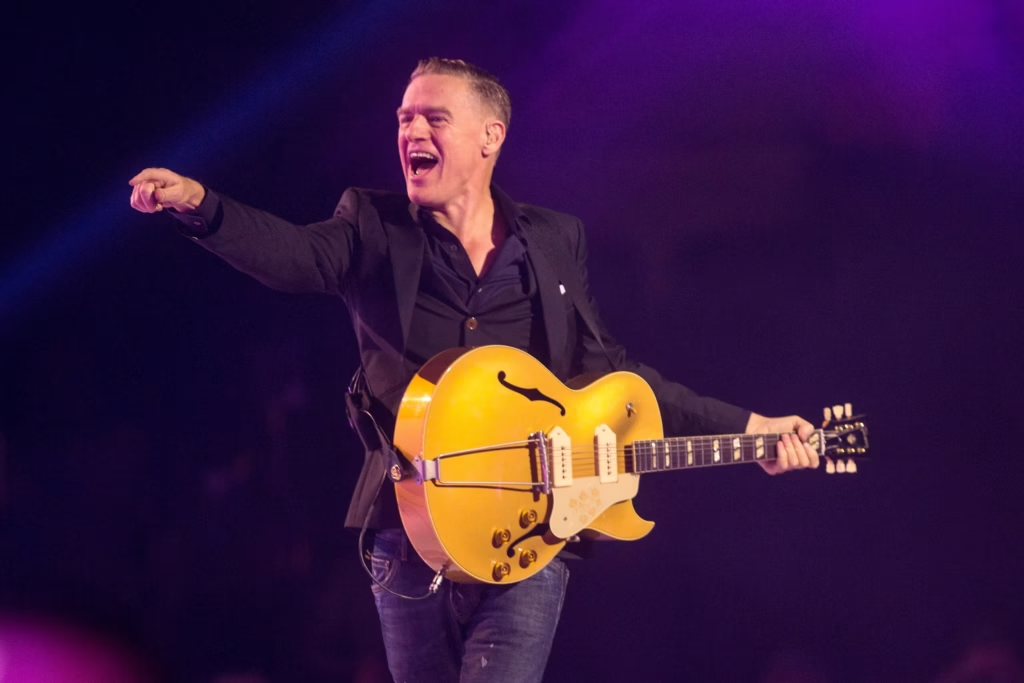Few artists have defined an era like Bryan Adams. With his signature blend of rock anthems, soulful ballads, and cinematic songwriting, Adams has carved out a legacy that spans over four decades. From stadium tours to film soundtracks, his influence on Western music—particularly the rock and pop genres of the ’80s and ’90s—remains profound.
In a revealing episode of the podcast I Never Thought It Would Happen, hosted by Chris Difford of Squeeze, Adams opens up about his formative years, the serendipitous rediscovery of his first guitar, the emotional weight of the pandemic, and his evolving role in today’s music landscape.
The Real Story Behind “Summer of ’69”
One of the most iconic lines in rock music—“I got my first real six-string, bought it at the Five and Dime”—has long been interpreted as a nostalgic nod to small-town American life. But as Adams clarifies in the podcast, the reality is more grounded in his personal history. The “Five and Dime” wasn’t a chain store—it was a modest music shop in Reading, England, where he bought his first guitar in 1970. Adams was just ten in 1969, lending a layer of poetic license to the song’s timeless appeal.
“It wasn’t some big American moment—it was a real moment from my childhood, in England,” Adams shared. “But the memory is what makes it powerful.”
This revelation highlights the myth-making quality of music—how truth, metaphor, and melody intertwine to create universal resonance.

A Guitar Lost and Found: The Emotional Return
The story of Adams’ first guitar doesn’t end in Reading. His family moved frequently due to his father’s diplomatic career, including time in Israel. Somewhere along the way, the guitar was lost. Decades later, an unexpected email arrived from someone claiming to have the instrument. Unfortunately, contact was lost before they could meet.
Years later, in a Berlin nightclub, a stranger approached Adams and said, “I’ve got your guitar.” The man had inherited it from the original emailer, who had passed away. This poignant reunion—almost cinematic in its arc—embodies the enduring bond between an artist and the instrument that started it all.

The Pandemic’s Hidden Gift: A Pause for Reflection
For most musicians, the COVID-19 pandemic was a professional upheaval. For Bryan Adams, it was something else: a rare period of stillness.
“It was a lifesaver,” he admitted. “We couldn’t go anywhere, and that gave me time with my family I didn’t know I needed.”
Despite initial fears that his career might never resume—“I thought music was done for good”—Adams emerged with a renewed perspective. The forced isolation allowed him to recalibrate, and ultimately, to reconnect with his core passion: songwriting.

Performing in a Masked World
As lockdowns eased, Adams returned to the stage under unusual conditions. He recalls a surreal show in Portugal where masked fans muted the typical energy of a live crowd.
“The sound wasn’t the same—it was dulled, like singing into a pillow,” he said. The experience, though strange, offered a glimpse into the resilience of music as a form of connection, even through layers of masks and distancing.
Behind the Curtain: Writing for Pretty Woman
Expanding his artistic reach, Adams teamed up with longtime collaborator Jim Vallance to score the West End adaptation of Pretty Woman. But the process wasn’t without creative compromise.
“It was songwriting by committee,” Adams explained. “Every idea went through producers and directors. We wrote 40 songs—only 20 made the final album.”
This insight sheds light on the often unseen creative grind behind stage productions, where artistic vision must often yield to collaborative consensus.
A Voice for Musicians: Supporting Help Musicians
The podcast also amplified the mission of Help Musicians, a UK-based charity offering vital support to artists in crisis or transition. In 2024 alone, the organization delivered over 17,000 assistance interventions.
Host Chris Difford praised the initiative: “It’s been a joy uncovering these stories—stories that show how deeply music touches lives.”
Sarah Woods, CEO of the charity, underscored the need: “Music is a rewarding career, but it’s also incredibly precarious. Our work ensures no musician has to face hardship alone.”
For Adams—who weathered the industry’s highs and lows—such efforts resonate deeply, especially in a post-pandemic world still redefining live performance and creative livelihood.
Looking Forward: Music, Resilience, and Legacy
As the podcast series continues, Adams shows no signs of slowing down. He’s working on new projects, collaborations, and continuing his partnership with Help Musicians. More than nostalgia, his journey serves as a masterclass in reinvention, resilience, and the enduring power of storytelling through song.
In contemplating the future, Adams posed a powerful question: “If another crisis hits, would we lock down again?” His tone was reflective—not cynical—pointing to a changing world where artists, like everyone else, must adapt.
Conclusion: A Story Still Being Written
Bryan Adams’ life in music is more than a catalogue of hits; it’s a chronicle of persistence, memory, and evolution. From a childhood guitar in a quiet English shop to a world stage, from pandemic fears to artistic rebirth, Adams embodies the soul of an artist who never stops creating.
And as long as his six-string plays on, the story is far from over.
FAQs
What’s the real origin of “Summer of ’69”?
The iconic line refers to a guitar bought in Reading, England—not a U.S. thrift store—revealing a more personal story than the American nostalgia it implies.
How did the pandemic affect Adams’ music?
Initially fearing the end of his career, Adams ultimately found peace and inspiration during lockdown, describing it as a “lifesaver” for family connection.
What challenges did he face while writing for Pretty Woman?
Theatre songwriting involved heavy collaboration, with many songs scrapped after committee reviews—a stark contrast to his solo creative process.
What is Help Musicians?
A UK charity supporting artists across all career stages, especially during crises. In 2024, it conducted over 17,000 interventions for struggling musicians.
What are Adams’ plans going forward?
He continues to tour, write, and collaborate while advocating for fellow musicians through charitable projects and podcast storytelling.

